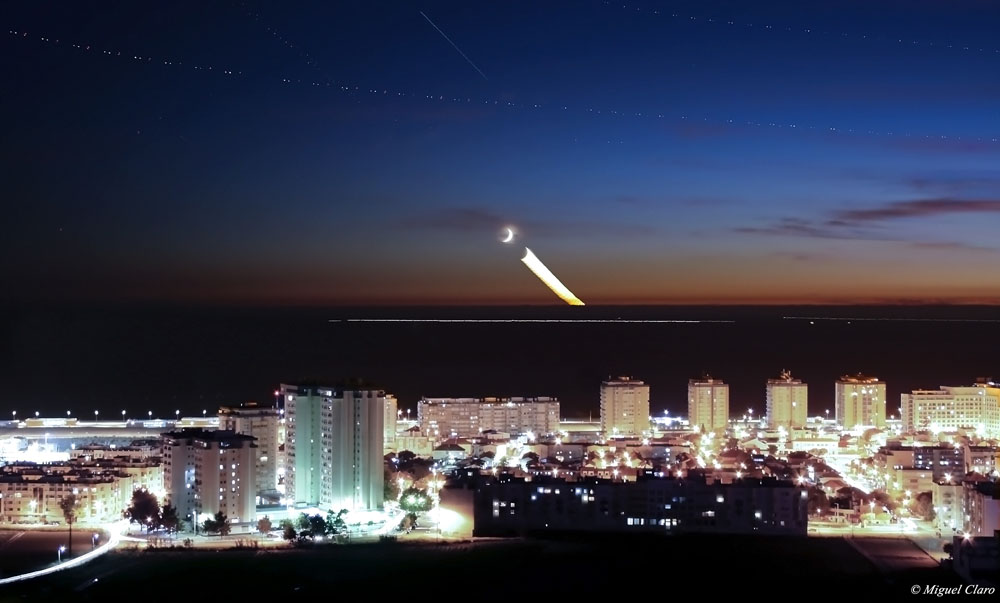September 24, 2009
Happy Trails
image by Miguel Claro, Capuchos, Portugal
From Thursday afternoon till Friday morning my wife and I will be on a plane - like one of these blinking across Miguel's sky. We travel because of the Moon - to give a talk at the 2009 Shannonside Astronomy Club Burren Starparty in Ireland. I have been thinking of making some notes about each of the images shown - all from LPOD - thank you! - and posting the PowerPoint of the talk online so that any of you can use it to give talks to your local astronomy clubs or other interested groups. I would have to ask each of the LPOD imagers for their OK, but then you could use great images and some interpretation to promote observing and understanding the Moon to people all over the world. Interested?
Thursday is an important day for lunar science. Carle Pieters, recently featured in LPOD, is leading a NASA press conference to announce, according to all the many leaks, that there is decisive evidence of hydrated minerals on the Moon. Hydrated means that the rocks have water molecules in their structure. And this discovery is not just limited to dark polar craters. This will force a rethinking of the results from analysis of hundreds of pounds of Apollo samples that the Moon is "bone dry" - the phrase many of us have used for decades. I expect that the samples haven't lied, that most of the Moon has little to no water tied up in its rocks. What will be exciting to learn tomorrow is where the water is and how it got there. But these details will be secondary to the likely impulse that this discovery gives to renewed lunar exploration. The $3 billion/yr extra that the Augustine Commitee reports is necessary to send Americans to the Moon seems harder to refuse now.
Chuck Wood
Remember - no LPODs for the next 5 days unless someone else posts them! If you are addicted, check out the visual index of the last 600 or so LPODs!
Technical Details
Sept 21, 2009. Canon 400D, 30 images, each 30 seconds exposure, starting at 20:25 and ending at 20:47 with total time of 22minutes. Miguel setup the camera with an aperture of F-4.5, ISO 400 with a 34mm lens. Later, he combined them all manually, in Photoshop CS3 to produce a single image with the path of the Moon.
Related Links
Miguel's beautiful website
COMMENTS?
Click on this icon File:PostIcon.jpg at the upper right to post a comment.




